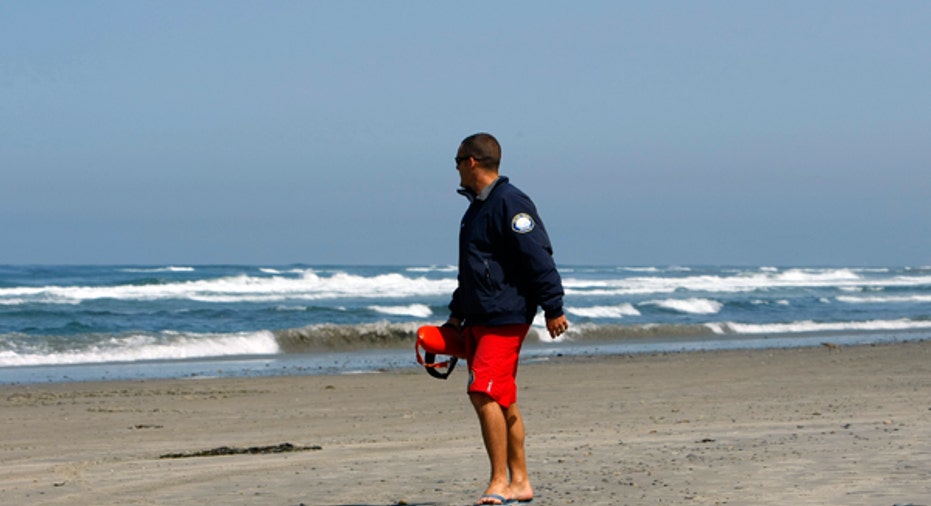How to Motivate Your Teen to get a Summer Job

Teens might think their summer break is the perfect time to sleep-in, hit the pool and hang out with friends, but parents probably have a different image of how their kids should fill the time: a summer job.
Summer jobs allow teenagers to dip their toes into the working world, earn a paycheck and learn some money management techniques. These are all valuable life skills, but a tough sell to teenagers looking to enjoy their three months of freedom.
Rewind to the 1980 and early 1990s and 40-50% of teens had jobs, according to The Bureau of Labor Statistics. As of May, 25% of teens ages 16-19 are employed. While part of this decrease can be blamed on the prolonged weak labor market, experts say gaining work experience as early as possible can help kids’ career paths.
“Parents fail by not at least encouraging their kids to get a part time job,” says Ellie Kay, author of The 60 Minute Money Work Out. Motivating teens to do anything can be an uphill battle, but experts say there are ways to motivate them and show them the benefits of working without turning them off to the idea of working during their time off.
Tip. No. 1: Show them the Money
Showing kids that earning a paycheck will provide them some monetary freedom from the bank of mom and dad is a good motivator.
Kay suggests telling kids, “Our love for you is unconditional, but our money for you is conditional.” Emphasize to teens that a majority of their paycheck should go into savings, but some would also be discretionary spending.
Kay suggests parents pick out a particular item or bill-like gas money, cell phone, or clothes—and tell kids they will no longer be funding this expense.
“This will lead to a gap in their fun and cash flow and will be wonderful motivation for them to go out and get a job.”
John Gallo of Gallo Consulting stresses that teens suddenly learn an item’s worth once they have to use their own money to pay for it. “If 20% of what you made in the summer goes into schooling, then the experience becomes that much more real to you- you’ll want to get your money’s worth.” says Gallo.
Tip No. 2: Emphasize Connections
A workplace environment will force teens to interact with people they normally wouldn’t, which teaches networking skills and learning how to get along all types of people.
“As a psychotherapist, I see people not really understanding how to get along with co-workers, so working a summer job can really give a leg up in working as a team member and getting along with different people,” says Eileen Gallo of Gallo Consulting.
A summer job also exposes teens to working under a manager, and teaches them how to take orders, follow through and become a team player.
“In the work world, they will have to deal with, for the first time in his or her life, a person other than their parents or teachers who are not concerned with their ego—and can fire them if they do a bad job”, says John Gallo.
Tip No.3: Show Long-Term Advantages
The prolonged weakness in the labor market has dominated headlines, and experts say parents can use current events as a teaching moment to emphasize the importance of early job experience.
Teens face even more competition than in summers past with more unemployed adult workers vying for open part-time positions.
Even if a teen gets turned down multiple times, parents can use the rejections in a positive manner. “It’s really important to pick yourself up and move ahead when getting turned down for a position-a young person can really build some resilience,” says Eileen Gallo.
Ellie Kay emphasizes that even a bad experience at work can be a learning experience and show teens what positions or industries they want to avoid later in life. “They can look around and say I’ve done this job, when they work it opens their eyes to a whole new world- they start to consider: Do I like my manager’s job? Would I be interested in that? Or what about his boss’ job and do I even like this field? It really opens up their eyes to what they want in the future.”
Tip No.4: Point them in the Right employment Direction
“Teens should be looking at jobs that typically hire young people such as summer camps, parks, or a swim-club jobs that would prefer a younger person rather than an older person. Whereas someplace like a restaurant might not,” recommends Neale Godfrey, CEO and chairman of Children's Financial Network.
Godfrey stresses that even if a teen isn’t able to land a paying job, a volunteering job can be just as rewarding with work experience.
Parents should also encourage their kids to get creative with finding work. “Perhaps they can teach guitar or soccer or anything that they are really good at,” suggests Godfrey. “Go around and talk to other parents in the area to see if there are other opportunities that you could create your own type of entrepreneur summer camp. It could be as simple as reading to little kids for an hour- just so that they are doing something productive and gaining experience.”



















